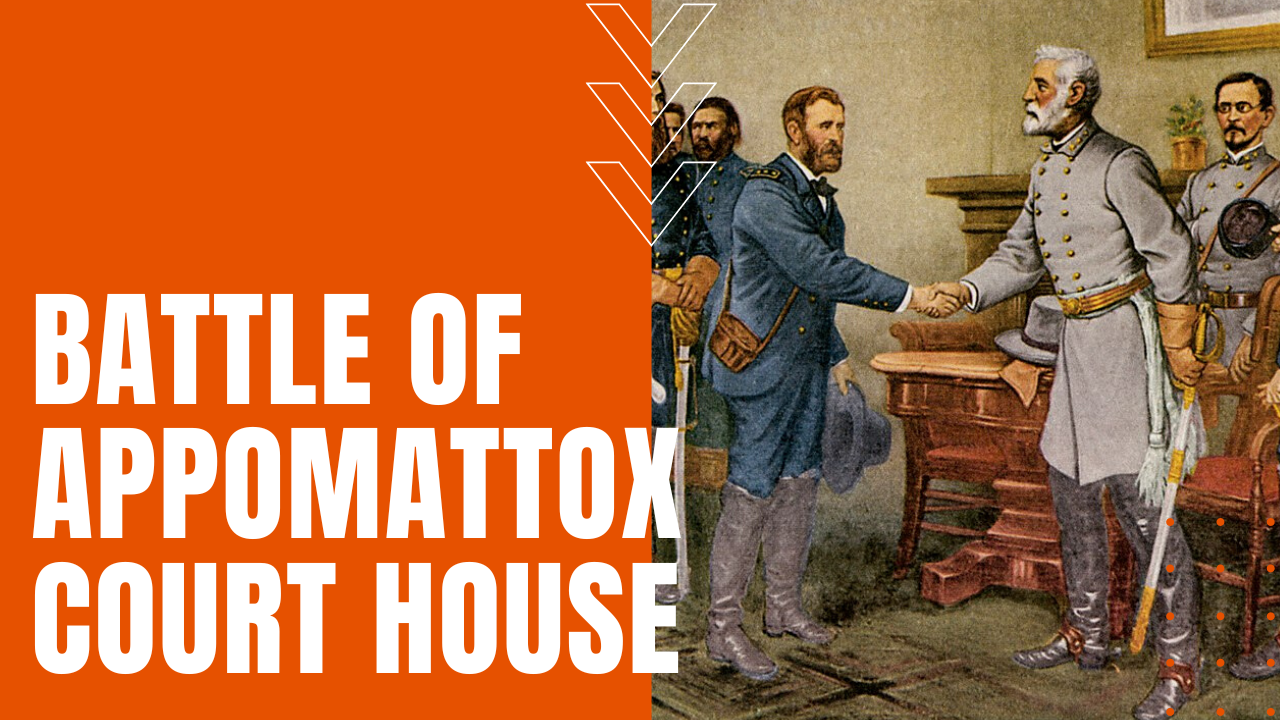Battle of Appomattox Court House

Retreating in disarray after the Union army’s successful Appomattox campaign of March 1865, Robert E. Lee’s Army of Northern Virginia moved west in a last-ditch effort to stay in the fight, stripped of food and supplies that witnessed a steady desertion as Rebel soldiers saw the writing on the wall.
After nearly 6,000 Confederate troops were taken prisoner by a Union cavalry offensive led by General Philip Sheridan, by April 8th, the remaining Rebel holdouts found themselves nearly surrounded by Union positions.
Confederates Pressured at Appomattox Court House
The following morning, Major General John B. Gordon staged a final Confederate offensive at Appomattox Court House Virginia, and while his push was at first successful, Gordon’s men were hopelessly outnumbered by two Union corps who had marched all night to cut off the last of the Confederate army.
By late morning, armed with the knowledge that his remaining 28,000 men would soon resort to pillaging the Virginia countryside for food and supplies, Robert E. Lee famously declared that:
“There is nothing left me to do but to go and see General Grant, and I would rather die a thousand deaths.”
Robert E. Lee
Stripped of any remaining options, Lee penned a message to General Ulysses S. Grant, indicating his willingness to surrender his Army of Northern Virginia, prompting a 1:00 P.M. meeting between the two war-weary generals in the front parlor of Wilmer McLean’s home at Appomattox Court House—Lee in full dress attire, while Grant arrived in his mud-splattered field uniform.
Civil War Comes to a Close
After Lee asked for the terms of surrender, Grant offered full pardons to all Confederate officers and soldiers, sending them home with their private property and horses, the later proving critical to late spring planting. Officers would keep their side arms, while Lee’s starving men would be fed by Union rations. When a Union band struck up a celebratory ditty outside the McLean house, Grant ordered their silence, telling his officers that
“The war is over, the Rebels are our countrymen again.”
General Ulysses S. grant
While scattered Confederate resistance continued until May 13th at the Battle of Palmito Ranch near Brownsville Texas, the four-year-long American Civil War had come to an unceremonious end, all at a cost of some 620,000 American lives.
